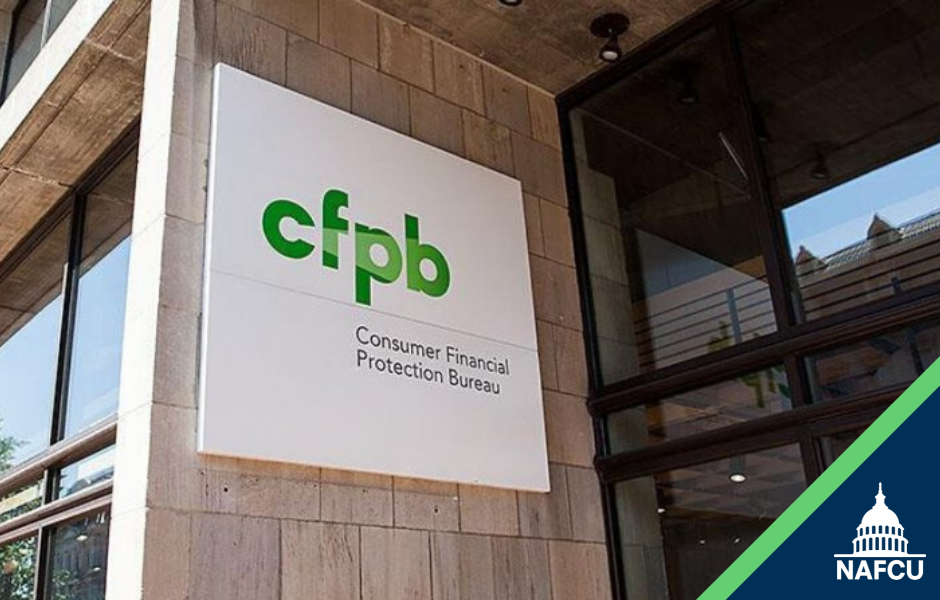Newsroom
CFPB report underscores alarming rate of bank branch closures; highlights negative impacts on rural communities

The CFPB Tuesday published a new report on the financial challenges facing American consumers in rural communities, revealing one main roadblock is a lack of access to physical bank branches. The report also examines “the importance of banks and credit unions – particularly the relationship banking those small financial institutions provide – to rural communities, and challenges accessing credit.”
“For decades, many government agencies have turned a blind eye to pressing problems facing families, farmers, and businesses in rural communities,” said CFPB Director Rohit Chopra. “The CFPB will be focusing on ways to ensure that rural communities can better access relationship banking services and achieve their economic potential.”
The Bureau clarifies the multiple definitions of rural communities according to the U.S. Department of Agriculture’s (USDA) Economic Research Service, as rural or “non-metro” counties home to 46 million people, which makes up 14 percent of the U.S. population. In addition, the majority of this population tends to have lower income and higher poverty rates.
According to the report, although credit unions are doing their part to expand financial products and services to rural communities, continued bank consolidations and closures are disproportionately impacting consumers in rural areas who are more likely to depend on and visit physical bank branches and who “have less access to the internet and online banking options, and are more likely to live in banking deserts.”
Of note, the CFPB also adds that when rural customers visit branches, they tend to visit smaller community banks or credit unions, financial institutions that are more fitting for “the local economic terrain” and more attune to the needs of those communities.
“This reliance on smaller banks is also evident in a CFPB analysis of HMDA data, which shows that compared to lenders with larger origination volume, lenders that originate between 25 and 100 mortgages annually have a higher share of loans secured by property in rural areas,” the report added.
“Credit unions have always played an important role in helping those of modest means and the CFPB’s report reaffirms this mission,” stated NAFCU President and CEO Dan Berger in response to the report. “By nature, the credit union industry prioritizes meeting the financial needs of those who are underbanked and left behind by big banks. I’m proud to serve as an advocate for credit unions across the country and thank them for their unwavering efforts to expand financial equity to communities that need them most.”
NAFCU has fervently advocated broadening support toward underserved, rural communities, especially those caught in banking deserts. The association has shared support for the Expanding Access for Underserved Communities Act, introduced by House Financial Services Committee Chairman Maxine Waters, D-Calif., which would make changes to the Federal Credit Union Act to allow all types of federal credit unions to add underserved areas to their field of membership.
Reiterating the main challenges presented throughout the CFPB’s report, NAFCU has also noted that the number of bank branches in rural and underserved areas have declined by 10.8 percent since 2012 – a pace of over 200 bank branch closures a month in the last two years – while the number of credit union branches in those areas have actually grown by 2.4 percent.
In a letter to the committee last month, NAFCU Vice President of Legislative Affairs Brad Thaler explained that opposition from banking trade groups on this important legislation is misguided when considering the vast decline of bank branches in rural areas over the last several years.
NAFCU has long engaged Congress on this topic, with President and CEO of JetStream Federal Credit Union Jeanne Kucey recently testifying on behalf of NAFCU before the Senate Banking Committee to highlight the role of CDFIs and MDIs in their communities and specifically call for changes to the FCU Act that would allow credit unions to serve underserved areas.
Share This
Related Resources
Add to Calendar 2024-06-26 14:00:00 2024-06-26 14:00:00 Gallagher Executive Compensation and Benefits Survey About the Webinar The webinar will share trends in executive pay increases, annual bonuses, and nonqualified benefit plans. Learn how to use the data charts as well as make this data actionable in order to improve your retention strategy. You’ll hear directly from the survey project manager on how to maximize the data points to gain a competitive edge in the market. Key findings on: Total compensation by asset size Nonqualified benefit plans Bonus targets and metrics Prerequisites Demographics Board expenses Watch On-Demand Web NAFCU digital@nafcu.org America/New_York public
Gallagher Executive Compensation and Benefits Survey
preferred partner
Gallagher
Webinar
Add to Calendar 2024-06-21 09:00:00 2024-06-21 09:00:00 The Evolving Role of the CISO in Credit Unions Listen On: Key Takeaways: [01:30] Being able to properly implement risk management decisions, especially in the cyber age we live in, is incredibly important so CISOs have a lot of challenges here. [02:27] Having a leader who can really communicate cyber risks and understand how ready that institution is to deal with cyber events is incredibly important. [05:36] We need to be talking about risk openly. We need to be documenting and really understanding what remediating risk looks like and how you do that strategically. [16:38] Governance, risk, compliance, and adherence to regulatory controls are all being looked at much more closely. You are also seeing other technology that is coming into the fold directly responsible for helping CISOs navigate those waters. [18:28] The reaction from the governing bodies is directly related to the needs of the position. They’re trying to help make sure that we are positioned in a way that gets us the most possibility of success, maturing our postures and protecting the institutions. Web NAFCU digital@nafcu.org America/New_York public
The Evolving Role of the CISO in Credit Unions
preferred partner
DefenseStorm
Podcast
AI in Action: Redefining Disaster Preparedness and Financial Security
Strategy
preferred partner
Allied Solutions
Blog Post
Get daily updates.
Subscribe to NAFCU today.
